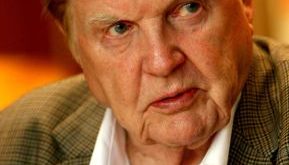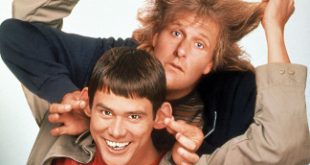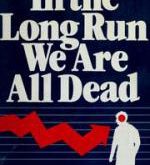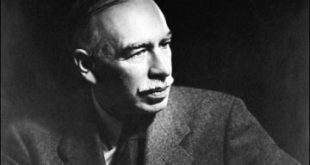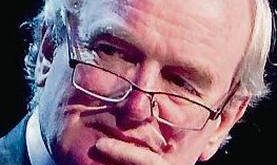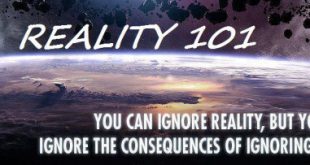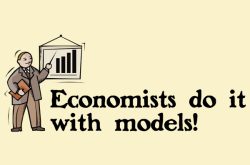The euro — a Reaganomics wet dream There are obviously still a lot of economists out there who do not accept the conventional wisdom that the euro is a bad idea. However, there seems to be some rather basic facts about optimal currency areas that all economists would perhaps be wise to consider … The idea that the euro has “failed” is dangerously naive. The euro is doing exactly what its progenitor – and the wealthy 1%-ers who adopted it – predicted and planned for it to do. That...
Read More »Why ‘Economics and Reality’ is on my top 10 list
Why ‘Economics and Reality’ is on my top 10 list For a good many years, Tony Lawson has been urging economists to pay attention to their ontological presuppositions. Economists have not paid much attention, perhaps because few of us know what “ontology” means. This branch of philosophy stresses the need to “grasp the nature of the reality” that is the object of study – and to adapt one’s methods of inquiry to it. Economics, it might be argued, has gotten this backwards. We have imposed our...
Read More »Why Africa is so poor
Why Africa is so poor A few years ago, two economics professors, Quamrul Ashraf and Oded Galor, published a paper, “The ‘Out of Africa’ Hypothesis, Human Genetic Diversity, and Comparative Economic Development,” that drew inferences about poverty and genetics based on a statistical pattern … When the paper by Ashraf and Galor came out, I criticized it from a statistical perspective, questioning what I considered its overreach in making counterfactual causal claims … I argued (and continue...
Read More »The long run fallacy
The long run fallacy It appears to me that one great cause of our difference in opinion, on the subjects which we have so often discussed, is that you have always in your mind the immediate and temporary effects of particular changes—whereas I put these immediate and temporary effects quite aside, and fix my whole attention on the permanent state of things which will result from them. Letter from Ricardo to Malthus January 1817 On this issue Keynes agreed with Malthus, and it was probably...
Read More »Top 10 Economics Books
Top 10 Economics Books Karl Marx, Das Kapital (1867) John Maynard Keynes, General Theory (1936) Kenneth Arrow, Social Choice and Individual Values (1951) John Kenneth Galbraith, The Affluent Society (1958) Amartya Sen, Collective Choice and Social Welfare (1970) Nicholas Georgescu-Roegen, The Entropy Law and the Economic Process (1971) Michal Kalecki, Selected Essays on the Dynamics of the Capitalist Economy (1971) Paul Davidson, Money and the Real World (1972) Hyman Minsky, John Maynard...
Read More »Price rigidities and unemployment
Price rigidities and unemployment There are unfortunately a lot of mainstream economists out there who still think that price and wage rigidities are the prime movers behind unemployment. What is even worse is that some of them even think that these rigidities are the reason John Maynard Keynes gave for the high unemployment of the Great Depression. This is of course pure nonsense. For although Keynes devoted substantial attention to the subject of wage and price rigidities in General...
Read More »DSGE models — a costly waste of time
DSGE models — a costly waste of time Commenting on the state of standard modern macroeconomics, Willem Buiter argues that neither New Classical nor New Keynesian microfounded DSGE macro models have helped us foresee, understand or craft solutions to the problems of today’s economies: The Monetary Policy Committee of the Bank of England I was privileged to be a ‘founder’ external member of during the years 1997-2000 contained, like its successor vintages of external and executive members,...
Read More »Models vs. reality
So by using a representative-agent, perfect-foresight, complete-markets model, David is ignoring a bunch of things that we know can totally change the answers to the exact policy questions David is thinking about. So what should we do instead? One problem is that models with things like heterogeneity, stochasticity, and imperfect markets are a lot more complicated, and therefore harder to apply in quick or casual way. If we insist on using models with those elements, then it’s going to be...
Read More »The Economics of Building That Wall
Photo by: Matt Clark. First things first: the U.S. already has a border wall with Mexico. This is a widely-documented fact, illustrated in detail by National Geographic. If Trump supporters had bothered to do so much as a Google search, they would realize that — whatever one might think of illegal immigration — it isn’t going to be stopped by a border wall. A border wall already exists, and illegal immigration continues. But what about replacing the current border wall with a bigger one?...
Read More »Krugman’s modeling flim flam
Krugman’s modeling flim flam Paul Krugman has a piece up on his blog this week arguing that the ‘discipline of modeling’ is a sine qua non for tackling politically and emotionally charged economic issues: You might say that the way to go about research is to approach issues with a pure heart and mind: seek the truth, and derive any policy conclusions afterwards. But that, I suspect, is rarely how things work. After all, the reason you study an issue at all is usually that you care about...
Read More » Heterodox
Heterodox

